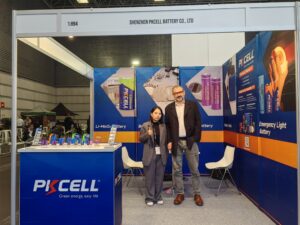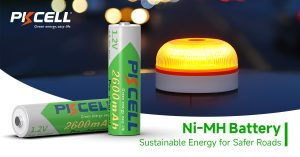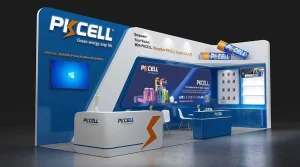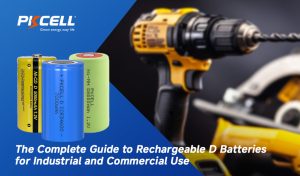
Key Highlights
- Alkaline batteries create power using zinc and manganese dioxide. They have an alkaline fluid inside. Carbon zinc batteries use a zinc part and a carbon rod. They have an acidic fluid instead. Both types of batteries use zinc. However, their inner parts and types of fluids are different.
- Alkaline batteries have a higher energy density than carbon zinc batteries. This means that alkaline batteries last longer when people use devices that need power all the time.
- When you use an alkaline battery, the voltage stays almost the same as it loses power. Carbon zinc batteries lose voltage fast if the device takes a heavy load. Alkaline batteries are good for things that need the same level of power during the full discharge cycle.
Introduction
When we pick batteries to use each day, we will choose between alkaline batteries and zinc batteries. But how are these two different from each other? If you know the main differences between alkaline batteries and zinc batteries, you can make a better choice next time.
Understanding Alkaline Batteries
Alkaline batteries can be found in most homes now. People like to use alkaline batteries. One of the reasons is, they last longer than other battery types. Also, they work well and give good power. Alkaline batteries are also known as dry-cell batteries. They use a thick paste as the electrolyte. The paste has water in it, and this helps the electricity move. This is not like other batteries that use a liquid as the electrolyte. The design of alkaline batteries and the materials inside allow them to have a higher energy density. Alkaline batteries also give a steady power every time you use them.
Composition
In an alkaline battery, the zinc anode is the negative electrode. The manganese dioxide cathode is the positive electrode. These parts are in a potassium hydroxide solution. The solution acts as the electrolyte. It lets ions move between the electrodes and create current. The zinc anode reacts with the electrolyte. This causes electrons to flow out. The electrons travel through the circuit and power the device. Alkaline batteries last longer because they store more energy than zinc batteries. This makes them great for high-power devices.
Common Uses and Advantages
Alkaline batteries are a better choice for many things. The voltage from these alkaline batteries stays steady for a long time. They last longer than some other types. If you need something to work well for a long time, these alkaline batteries are good to use. Here are some advantages of Alkaline batteries:
- Reliable: These give you a steady voltage. Your device will work well and not have any big trouble.
- Leak-resistant: They are made to stop a leak. This will help keep your device safe.
- Widely available: You can find these in a lot of places. They come in many different sizes like AAA, AA, or D.
Devices that often use alkaline batteries include:
- High-drain devices: These are things such as digital cameras, portable gaming consoles, and cd players.
- Household electronics: This means items like remote controls, clocks, wireless mice, and smoke detectors.
- Toys and gadgets: This group has electronic toys, portable radios, and flashlights.
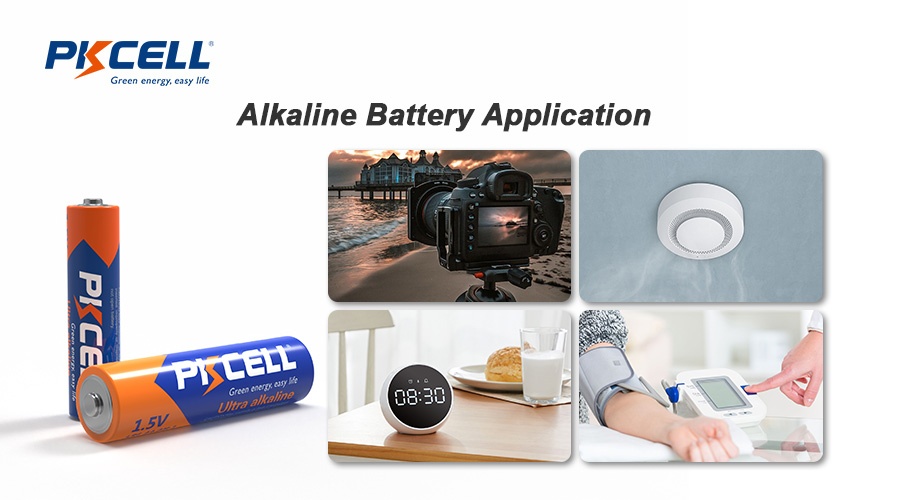
Exploring Carbon Zinc Batteries
Carbon-zinc batteries, also known as zinc-carbon batteries, are one of the cheapest types out there. They do not give power for as long as alkaline batteries do. This is easy to see when you use them in things that need more power. But they work well in things you use every day. So you can use both zinc batteries and carbon batteries for your basic needs.
Basic Chemistry
Carbon-zinc batteries are different from alkaline batteries. They use an acidic paste as the electrolyte. The positive end is the cathode. A carbon rod sits at the centre of the cathode, surrounded by manganese dioxide and carbon powder. These help with electricity flow and chemical reactions. The zinc anode, which is the negative electrode, forms the outer casing of the battery. The paste between the electrodes contains ammonium chloride or zinc chloride. The zinc anode loses electrons during oxidation. These electrons flow into the circuit. Manganese dioxide at the cathode takes in the electrons and becomes reduced. The electrolyte helps ions move and keeps the current flowing.
Typical Applications and Limitations
Carbon-zinc batteries work well in things that only need low power. If you want to save some money, these zinc batteries can be a good pick. But they do not have much energy stored inside. Here are some limitations of this battery:
- Shorter shelf life: Zinc batteries lose their charge faster than alkaline batteries, even when they are not in use. The shelf life is not as long.
- Voltage drop: A zinc battery’s voltage output gets lower as the battery gets used up.
- Risk of leakage: The battery’s acidic electrolyte can leak as time goes by. This leak often happens when a battery is fully used or is kept in a bad way. A leak can damage the device or the area around it.
Typical uses for carbon-zinc batteries are:
- Low-power devices: People often put zinc batteries and alkaline batteries in things like clocks, remote controls, and simple flashlights. These things do not use up much power.
- Devices used occasionally: This is about things that you or people do not use all the time, like transistor radios and toys.
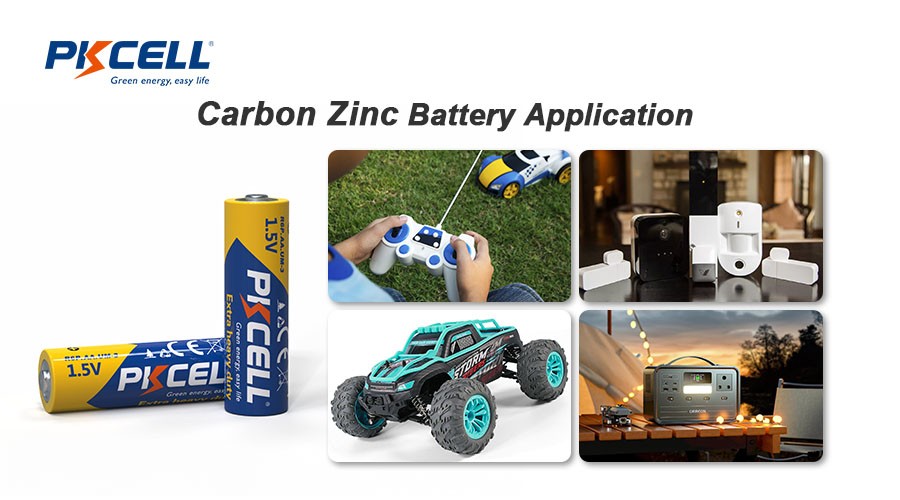
Comparative Analysis of Performance and LifeSpan
One main difference between alkaline batteries and zinc batteries is in how well they work and how long you can use them. This is because of the type of chemicals inside and the amount of energy they hold. Alkaline batteries and zinc batteries each use different materials, like zinc and alkaline, and this affects their use and performance.
Alkaline batteries use potassium hydroxide as the electrolyte. This helps them store more energy than some other batteries. Because of this, alkaline batteries last longer, even when you use them in things that need a lot of power. That is why alkaline batteries are a better choice for new gadgets and electronics.
Alkaline Vs Carbon Zinc Battery: Specification Differences
To know how alkaline batteries and zinc batteries are different, you can look at this easy table. It shows their main features.
|
Feature |
||
|
Electrolyte |
Potassium Hydroxide |
Ammonium Chloride or Zinc Chloride |
|
Energy Density |
High |
Low |
|
Voltage |
1.5V |
1.5V |
|
Shelf Life |
Long (5-7 years) |
Short (1-2 years) |
|
Cost |
More expensive |
Less expensive |
|
Suitable for |
High-drain devices, continuous use |
Low-drain devices, intermittent use |
|
Leakage Risk |
Low |
Higher |
Alkaline batteries are a good choice because they last a long time and work well. These batteries do not leak as much as other kinds. Zinc batteries, also called carbon-zinc batteries, are cheaper. They are better if you use them in a device for a short time. When you pick between alkaline batteries or zinc batteries, think about how long you want to use them and if a leak could be a problem.
The best choice will depend on what you need, what your device needs, and how much money you have to spend.
Why Choose PKCELL Batteries?
PKCELL is a great choice for alkaline and carbon zinc batteries because we focus on quality and reliability. With over 20 years in the battery business, we provide batteries that last and perform well. Our alkaline and carbon zinc batteries are perfect for everyday items like remotes, toys, and flashlights. They offer strong energy output and long shelf life. At PKCELL, we use advanced technology and strict quality checks to make sure every battery meets global standards like ISO9001, CE, and RoHS. When you pick PKCELL, you’re choosing batteries that are safe, durable, and reliable for daily use.
Conclusion
To sum up, it is good to know the differences between alkaline batteries and carbon zinc batteries. This helps you pick the right one for what you want. Alkaline batteries last longer. They also work better in most gadgets. Carbon zinc batteries are not as strong as alkaline batteries, but they are cheaper. They are good for things that do not need much power. Think about how you want to use the battery. Ask yourself if you want it to last longer or if you want to save money. If you want to get batteries you can trust, PKCELL batteries are a good choice because they are of good quality and work well. Make smart choices that fit what your device needs.
Frequently Asked Questions
Can I use Alkaline Instead of Carbon Zinc Batteries on my device?
Yes, you can use alkaline batteries instead of carbon-zinc batteries for many things. Alkaline batteries are usually better. They last longer than zinc batteries and do not leak as often.
How Do I Properly Dispose of Used Alkaline and Carbon Zinc Batteries?
People need to get rid of used alkaline batteries and zinc batteries in the right way. If we do not do this, these batteries can hurt the environment. Do not burn alkaline or zinc batteries. Also, do not throw them out with normal trash. Take them to special recycling bins or places that take batteries.
Can High Temperatures Affect the Performance of Alkaline and Carbon Zinc Batteries?
Yes, high heat can change how zinc and alkaline batteries work. When they get too hot, zinc and alkaline batteries can discharge more quickly. They may also leak, and this can harm your device. That is why you should keep zinc and alkaline batteries in a cool place. This helps them last longer and helps keep your devices safe from leaks.
How do alkaline and carbon zinc batteries perform in high-drain devices?
Alkaline batteries outperform carbon zinc batteries in high-drain devices due to their higher energy capacity and longer-lasting power. Alkaline batteries can deliver more consistent voltage, making them ideal for gadgets like digital cameras and gaming controllers, while carbon zinc batteries may struggle to provide sufficient energy under heavy loads.

 USB Rechargeable Lithium Battery
USB Rechargeable Lithium Battery
